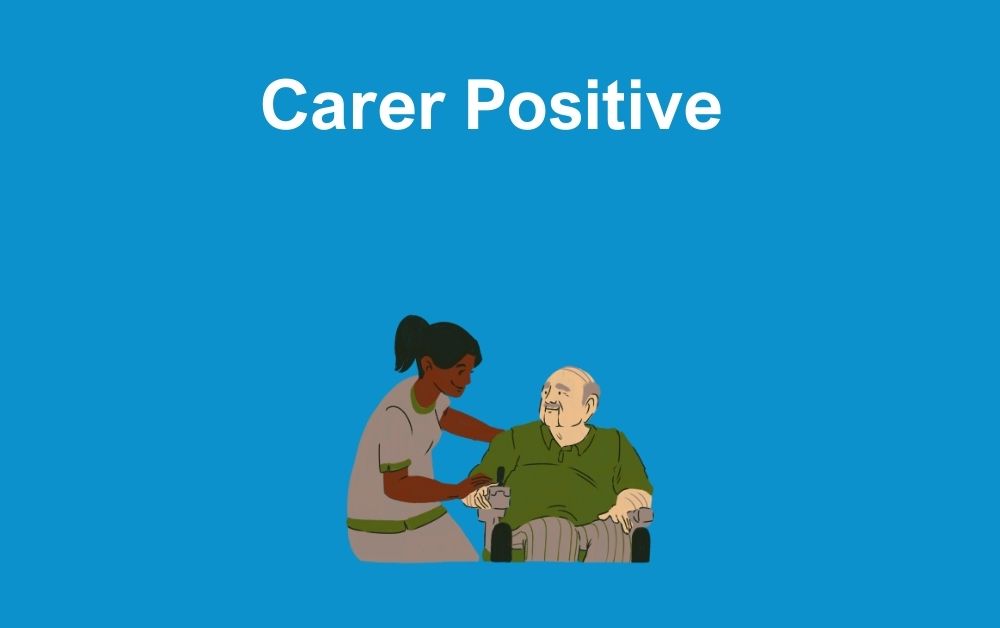As it is National Carers Week we thought it would be good to share some useful information regarding positive steps employers can take to support employees who may have to look after relatives.
This week, Alistair attended the Kitemark launch in conjunction with Carer Positive and Healthy Working Lives Fife and shares some of the points discussed that may help your business.
Why become Carer Positive?
Fostering an environment where each and every member of staff feels supported in the workplace is good employment practice.
The benefits to employers of having ‘carer friendly’ policies and working practices can include reduced levels of stress and sickness absence, lower recruitment and training costs, increased staff retention, morale and productivity levels.
It could help enhance your reputation as an ‘employer of choice’ for the growing numbers of people who value a better work-life balance.
In an ever-tightening labour market, the importance of recruiting and retaining employees with valuable skills and experience is crucial.
Becoming Carer Positive contributes to key workforce management and employee engagement issues. It can also help demonstrate corporate and community social responsibility aims.
Carer Positive and Healthy Working Lives now include aligned criteria to help employers achieve both awards.
Some statistics to be aware of:
- There are estimated to be 759,000 unpaid carers in Scotland
- 3 in 5 people are expected to care for somebody at one point in their lives
- There are 1 in 8 carers in the workplace
- Significant increase forecast
- Population getting older; increase in LTCs; and we’re all working longer
- By 2035, 50% more carers across the UK
- Therefore more working carers…
What’s involved?
The Carer Positive process is aimed to be clear and straightforward, based on a simple self- assessment process.
There is no cost associated with participating.
Employers submit an application form describing how they meet they meet the criteria in 5 key areas at each level of the kitemark. Where possible, this should be accompanied be evidence of their policies/activities.
The kitemark incorporates 3 levels, from ‘Engaged’, to ‘Established;, through to ‘Exemplary’. If they wish, employers can progress from one stage to the next, building from an initial level of commitment to embedding a culture of support for carers within the organisation.
Organisations are encouraged to identify and develop their own actions as appropriate to their size and structure. The intention is that all organisations, across all sectors, whether small or large, can achieve each level of the kitemark.
- 90% of working carers are over the age of 30
- Peak age for caring is 45-64
- Employees with valuable skills and experience
- As many as 1 in 5 carers give up work.
In a recent survey of 2,115 carers in the UK the impact of caring shows;
- 45% had given up work because of caring
- 42% had reduced their working hours
- 34% said caring negatively affected their chance if promotion
- 60% were unprepared for the impact that caring had on their career
- Recent CIPD/Simplyhealth research: more than 1 in 3 employers report that absenteeism has increased because workers need time for caring responsibilities
Caring and isolation in the workplace
- 7 in 10 working carers (71%) have felt lonely in the workplace as a result of their caring responsibilities
- Over 4 out of 10 (43%) working carers felt that colleagues and managers did not understand the impact of caring and 38% had not felt comfortable talking about their caring responsibilities at work
- Many working carers are at breaking point; a staggering third (32%) were caring for 50 plus hours a week, comprising over half (53%) of the carers who felt lonely or isolated in the workplace most of the time
- Nearly a quarter (23%) of carers received no support from their employer
- The top priority for workplace support was improved and consistent manager awareness of caring issues (37%) and more flexible/special leave arrangements (37%)
- More than 7 in 10 carers (72%) said they would be less stressed if these issues were addressed and 6 in 10 (60%) if someone understood their situation
- Over half (56%) of the carers who has given up work to care highlighted the stress of juggling work and care and a third (34%) the lack of suitable care services
So, as you’ll see, lots of reasons to get involved and there’s a good chance someone in your workforce will be caring for a relative. Even if you don’t want to be officially recognised as Carer Positive, you should still be looking at adopting policies and training managers to ensure any employees who do have caring responsibilities are supported at work.
If you would like more information regarding Carer Positive here are some useful websites;







